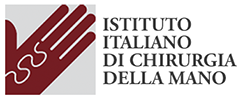MONITOR ON LINE “News from the University of Canberra.”
IntErnational surgeon Marco Lanzetta, a University of Canberra adjunct professor, held a free seminar on the topic of non-essential organ donation and transplantation as part of the university’s 40th anniversary celebrations.
Staff, students and members of the public were shown the future in organ donation and transplant surgery last month by the man who performed the world’s first hand transplant.
International surgeon Marco Lanzetta, a University of Canberra adjunct professor, held a free seminar on the topic of non-essential organ donation and transplantation as part of the university’s 40th anniversary celebrations.
In the past 10 years, more than 70 procedures have been performed including transplantation of one or both hands, face, lower limbs, knee, uterus, larynx and abdominal wall with an outstanding overall success rate.
His one-hour lecture covered the transplant process where organs are harvested from donors and transplanted to improve somebody’s life, rather than to save or prolong it.
Professor Lanzetta, who is also the director of the Italian Institute of Hand Surgery and Microsurgery and founder and co-chairman of the International Registry on Hand and Composite Tissue Transplantation, was enthusiastic in his descriptions of the new surgical field.
The audience sat in awe of the presentation which included graphic images of various transplantations including the world’s first facial transplant on a French woman whose face had been ravaged in a dog attack.
Professor Lanzetta was awarded a certificate of appreciation by the director of research services Mary Kelly for participating in the 40th anniversary celebrations.
“I thought it was an incredibly interesting seminar topic, and the presentation given by Marco Lanzetta was expertly tailored to the mixed interests of the audience,” Dr Kelly said.
“The University of Canberra is very fortunate to be associated with such a leader in his field, and would be delighted to invite him back to UC at any time.”
Professor Lanzetta thanked the audience and said he hoped to see Australia join the international registry on hand and composite tissue transplantation in the near future.
